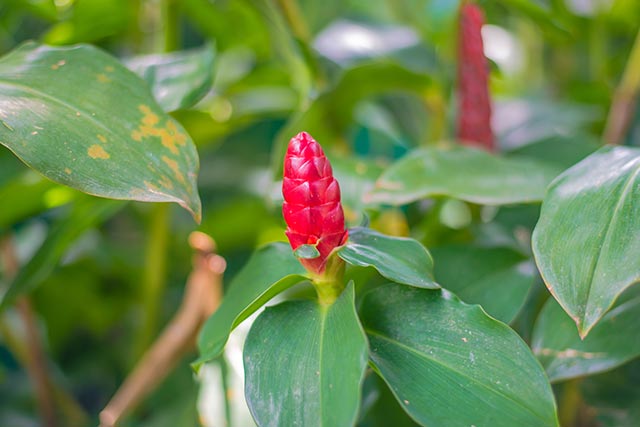For the ladies: Eating walnuts can help halt breast cancer
02/17/2020 / By Evangelyn Rodriguez

Aside from being a rich source of healthy fats and antioxidants, walnuts are known for their ability to lower blood pressure, support weight loss and decrease inflammation. But researchers from Marshall University (MU) in West Virginia recently discovered another great thing about walnuts: Regular consumption of this superfood can help women fight breast cancer.
Eating walnuts can alter the expression of breast tumor genes
In their previous studies, the researchers explored the effects of walnuts on cancer growth and development in mice. They found that the addition of even a small amount of walnuts to the diet of mice with human breast cancer implants significantly slowed cancer growth. Although the researchers were not able to determine which compounds were responsible for the effect, other studies point to ellagic acid, a-linolenic acid, beta-sitosterol, vitamin E and melatonin as the anti-cancer components of walnuts.
Besides slowing tumor growth, the researchers also found that a walnut-containing diet could significantly reduce tumor incidence in mice genetically programmed to develop mammary gland cancer. A look at cancer-related genes in the breast tumors of these mice revealed changes in gene expression, particularly for those involved in cell proliferation, mammary epithelial cell differentiation and cell death. And since these genes are also important in the development of human breast cancer, the researchers hypothesized that walnut consumption may have the same effect in humans.
To test this hypothesis, the MCU team conducted a two-arm, non-placebo clinical trial involving cancer patients whose breast lumps were large enough for research and pathology biopsies. They assigned the patients to either the walnut-consuming group or the control group. After biopsy collection, the women in the first group began consuming two ounces of walnuts every day until the day of their follow-up surgery. Pathological studies confirmed that the samples collected from them were breast cancer lumps.
Two weeks after the biopsy, the women underwent another surgery, during which the researchers collected additional samples. Then, they compared changes in gene expression between the surgical samples and the baseline samples for both groups. RNA sequencing expression profiling revealed that walnut consumption significantly changed the expression of 456 identified genes in the breast tumors. Further analysis confirmed the activation of pathways that promote apoptosis (programmed cell death) and cell adhesion, and the inhibition of pathways that promote cell proliferation and migration in the samples taken from the walnut-consuming group.
Based on these findings, the researchers concluded that walnut consumption can suppress the growth and survival of human breast cancers.
More reasons to eat walnuts
Walnuts are considered drupes or stone fruits that grow from the walnut tree. They are a great source of fiber, omega-3 fatty acids, vitamins and minerals. A 30 g serving of organic walnuts can provide:
- 20 g of healthy fats
- 5 g of protein
- 3.9 g of carbohydrates
- 2 g of fiber
- 20 mg of calcium
Walnuts can also provide vitamin B6, copper, manganese, magnesium, phosphorus and iron.
Although they are high in calories and fats, most of the fats in walnuts are monounsaturated and polyunsaturated fats, which are considered healthy. (Related: Walnuts rank as top nut, providing highest level of quality antioxidants.)
Health benefits of walnuts
Studies show that walnuts offer plenty of health benefits, such as:
- Reducing the risk of heart disease
- Reducing oxidative stress and inflammation
- Promoting weight loss
- Lowering the risk of gallstone disease
- Supporting bone health
- Increasing the amount of beneficial bacteria in the gut
- Controlling blood sugar levels
- Lowering blood pressure
- Supporting healthy aging
- Improving brain function
With its impressive nutrition profile and numerous health benefits, this superfood is a great addition to a healthy diet. However, walnuts are still loaded with calories, so it’s best to consume them in moderation.
Sources include:
Tagged Under: alternative medicine, anticancer foods, breast cancer, cancer cures, food cures, food is medicine, food science, functional food, natural cures, natural medicine, remedies, research, Walnuts, women's health
RECENT NEWS & ARTICLES
COPYRIGHT © 2017 PHYTONUTRIENTS NEWS


















